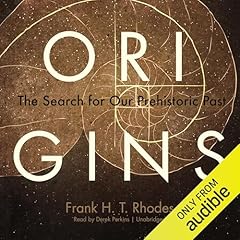
Animals as Neighbors
The Past and Present of Commensal Animals (The Animal Turn)
No se pudo agregar al carrito
Add to Cart failed.
Error al Agregar a Lista de Deseos.
Error al eliminar de la lista de deseos.
Error al añadir a tu biblioteca
Error al seguir el podcast
Error al dejar de seguir el podcast
 Exclusivo para miembros Prime: ¿Nuevo en Audible? Obtén 2 audiolibros gratis con tu prueba.
Exclusivo para miembros Prime: ¿Nuevo en Audible? Obtén 2 audiolibros gratis con tu prueba.Compra ahora por $18.63
-
Narrado por:
-
Andrea Emmes
-
De:
-
Terry O'Connor
In this fascinating book, Terry O'Connor explores a distinction that is deeply ingrained in much of the language that we use in zoology, human-animal studies, and archaeology - the difference between wild and domestic. For thousands of years, humans have categorized animals in simple terms, often according to the degree of control that we have over them, and have tended to see the long story of human-animal relations as one of increasing control and management for human benefit. And yet, around the world, species have adapted to our homes, our towns, and our artificial landscapes, finding ways to gain benefit from our activities and so becoming an important part of our everyday lives. These commensal animals remind us that other species are not passive elements in the world around us but intelligent and adaptable creatures. Animals as Neighborsshows how a blend of adaptation and opportunism has enabled many species to benefit from our often destructive footprint on the world. O'Connor investigates the history of this relationship, working back through archaeological records. By requiring us to take a multifaceted view of human-animal relations, commensal animals encourage a more nuanced understanding of those relations, both today and throughout the prehistory of our species.
©2013 Terry O'Connor (P)2015 Redwood AudiobooksLos oyentes también disfrutaron:




















Any additional comments?
I was most impressed with the narrator,Andrea Emmes,reading of the text.The subject was interesting but a bit more 'text book' than I thought it would be.Interesting concepts about animals co existence with 'man' through history.Animals as neighbors
Se ha producido un error. Vuelve a intentarlo dentro de unos minutos.
First off, a small warning. This book is an academic text and therefore some background in biology and/or anthropology is probably necessary to understand the concepts discussed as it is not written in layman's terms.
I loved this book. It is a good introduction into the field of anthrozoology. The author's discussions were extremely nuanced, never being able to reach firm conclusions due to the lack of research, historical records, or anthropological data. He points out many errors in logic that other (non-anthrozoologist) authors have made when talking about human's association with animals. For instance, he emphasizes many times that we can only make conclusions based at the POPULATION level and not at the SPECIES level. The same species may be a companion animal in one environment and culture, a commensal pest in another environment/culture, and a non-commensal, "wild" animal in a third. In relation, he also points out that commensalism is cultural - dependent on both human culture AND animal culture. Because one species is able to modify it's behavior not just across time but also circumstance, animals too have adopted and adapted to us.
I greatly appreciated the discussion of cats too, as many researchers question whether they are true domesticates (or are more of commensal animals).
The narrator was excellent. It is hard to make an academic text sound not boring, but Andrea Emmes did a wonderful job, never sounding monotone or flat. I would definitely listen to anything else she narrates.
This book was fascinating and I highly recommend it to anyone who wants to learn more about humans' interactions with animals.
Detailed survey of our human history with animals
Se ha producido un error. Vuelve a intentarlo dentro de unos minutos.
From cats and dogs who have become domesticated throughout history to other animals such as raccoons, rats, mice, squirrels, and birds, this is an extremely good presentation of tracing the origin of the cat and dog to explaining our relationship with the other animals as well. Mesocarnivore was also something I looked up although this audiobook explains it clearly. These would be foxes, coyotes, and skunks along with other animals who depend on humans as well. This was a very informative book.
Overall, this audiobook was an interesting listen while providing great insight into our commensal co-habitators. I would highly recommend giving it a listen.
Andrea Emmes has continued to be a great narrator and has proven her versatility time and again. She did a wonderful job with this audiobook and I look forward to more great work from her in the future.
Audiobook provided in exchange for an unbiased review.
Our Commensal Relationship with Animals
Se ha producido un error. Vuelve a intentarlo dentro de unos minutos.


